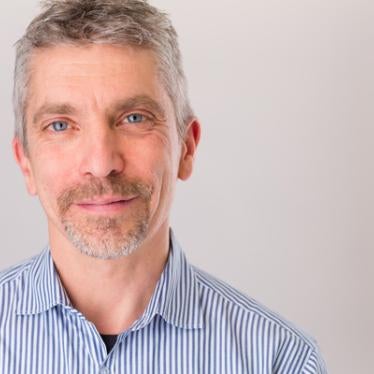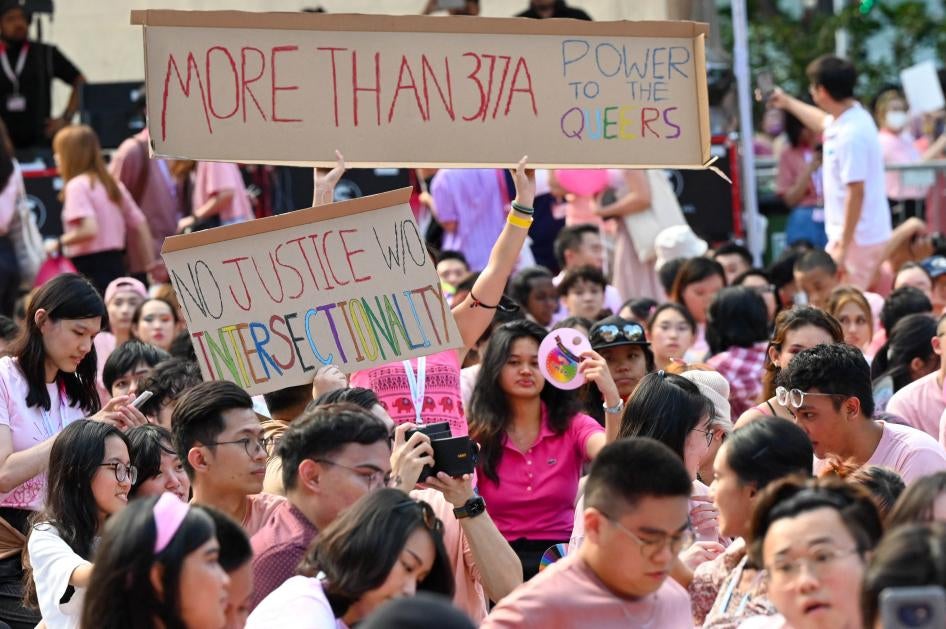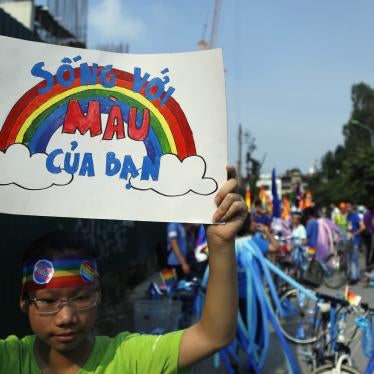Singapore’s Prime Minister Lee Hsien Loong announced on Sunday during a televised National Day Rally speech that his government would repeal the law that makes adult consensual sex between men a criminal offense. Section 377A of the criminal code, a relic of British colonialism introduced in 1938, is discriminatory and inconsistent with rights to nondiscrimination, privacy, and freedom from arbitrary arrest and detention. Similar colonial-era laws still exist in at least 67 other countries.
Section 377A has a legacy of driving stigma and discrimination against lesbian, gay, bisexual, and transgender (LGBT) people in Singapore. Court challenges in recent years have demonstrated the resolve of LGBT rights advocates and allies. In a February 2022 case, the Singapore Court of Appeal held that the law cannot be used to prosecute consenting partners engaged in private sexual activity.
Prime Minister Lee’s announcement signals promising reform. In a parliamentary debate on section 377A in 2007, Lee acknowledged that “Homosexuals are part of our society. They are our kith and kin.” But he stopped short of supporting repeal. The justification for retaining the law in 2007, while not proactively enforcing it, was that it signaled social disapproval.
LGBT people in Singapore continue to face discrimination in schools, workplaces, and accessing health care.
Now, 15 years later, Lee seems intent on his government repealing the law. But in announcing the news, Lee said he wanted to “repeal Section 377A in a controlled, carefully considered way,” explaining that the government will also put forward constitutional amendments that would prevent future legal challenges to the current definition of marriage as being between one man and one woman.
In response, a coalition of 23 Singaporean nongovernmental organizations said, “Any move by the government to introduce further legislation or constitutional amendments that signal LGBTQ+ people as unequal citizens is disappointing.”
Lee said in his speech Sunday that he wants gay people to “live their own lives, participate in our community and contribute fully to Singapore.” In the coming months, the government should engage with LGBT rights advocates to ensure that the legal reforms accomplish this.
Repealing 377A is a critical step for Singapore, but much work remains to be done to end discrimination against LGBT people in the country.










